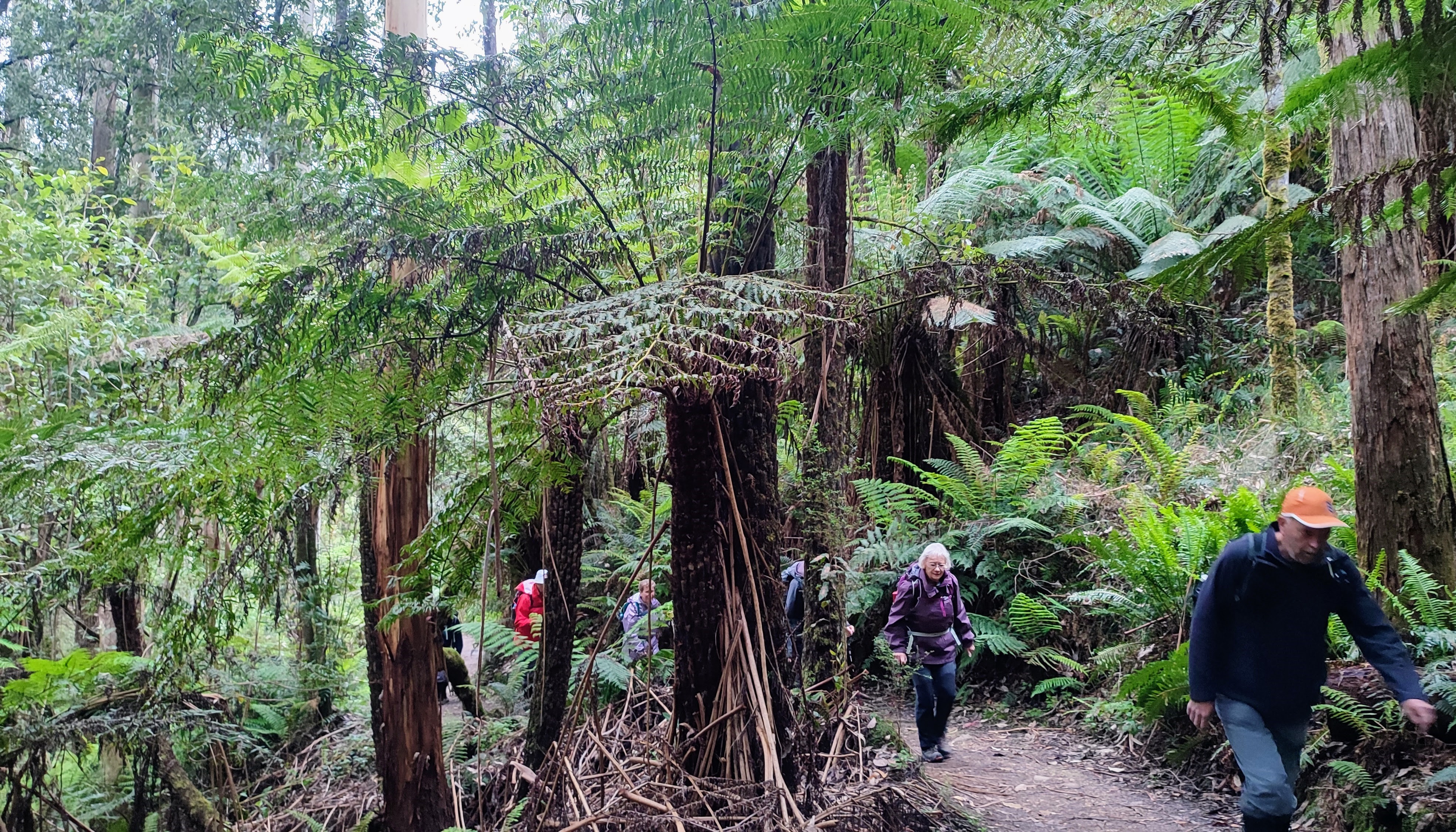Lake Elizabeth, Forrest - Day One of Apollo Bay Camp
U3A Hike No 272
Hike Report by Janet
Lake Elizabeth was formed in 1952. Flooding caused a landslide and the valley and forest were covered by water creating the lake. One of the few known places where platypuses can be seen in the wild. (Yes, this is the plural of platypus!)
What a gem! Most of us had not visited before and after walking along a narrow undulating trail that meandered through thick forest and lush tree ferns, we were delighted with our first view of Lake Elizabeth. Such a beautiful and tranquil place, calm waters surrounded by a lush wall of ferns and tree ferns and backed by magnificent eucalyptus soaring high in the sky. All reflected spectacularly in the still, tranquil waters of the lake punctuated by the petrified trunks of trees, a reminder of what was once a heavily treed valley before the flooding, and giving the lake an eerie and mystical feel.
We continued our walk along the track until Andrew cried ‘Hush” Our chattering ceased and we silently approached the water, crossing a small bridge to a jetty with 2 canoes moored ready for platypus sighting tours, and a lone platypus spotter sitting still, with binoculars ready. One of our group had on a previous visit seen platypuses, but sadly, we had no sightings and so we enjoyed morning tea overlooking the beauty of the lake.
Our walk continued around the Lake shore through thick stands of ferns, mosses and epiphytes adorning the trees, and across the Barwon River, just a small stream, hard to imagine it turning into the great river at Barwon Heads. Flowering mint bushes adorned the track as it wound back to the Lake where we had another look for the elusive platypus, but again, none to be seen.
The Otways' Lake Elizabeth is less than a century old, but its beauty and tranquility are timeless.
Lake Elizabeth is a newborn body of water, birthed by one unseasonably wet year. It rained relentlessly in 1952 in the Otways. But in June the East Barwon River stopped flowing, and a search party was sent upriver to find out what had become of the water.
They found a landslide had come off the valley wall, creating a dam. By August the river had filled the new lake, created a slipway, and was running again. A year later, after more heavy rain, the top 26 metres of the landslide dam wall washed away leaving a lake only one fifth as big as its first incarnation. Thus we have a perched lake so young, its whole lifespan is known. Anson Cameron




























Comments
Post a Comment